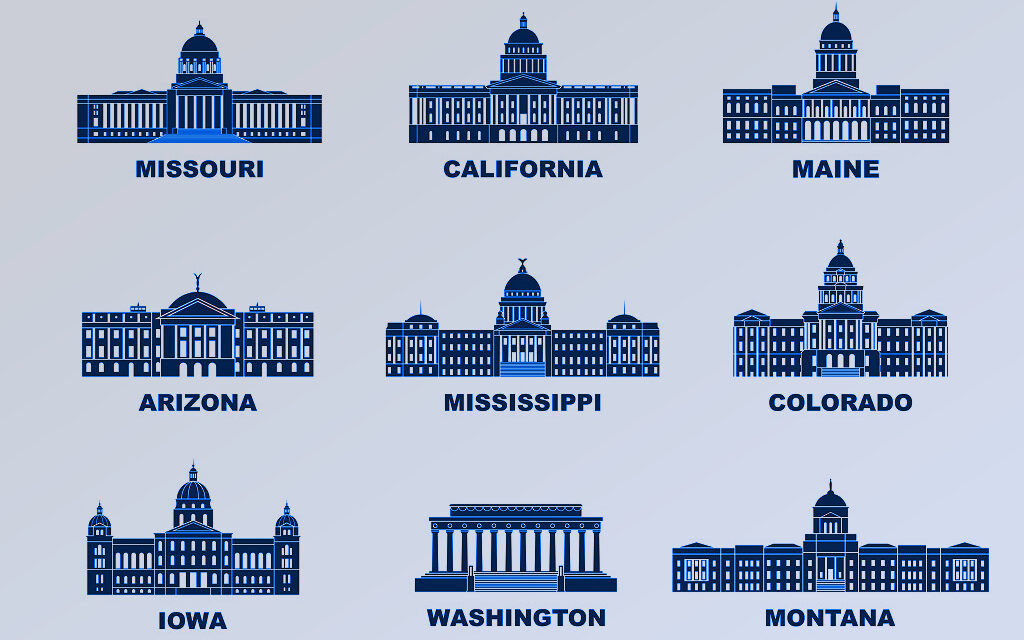With most state legislatures having adjourned for the year, states—once again—continue to lead the way for welcoming immigrants and refugees.
The American Immigration Council tracked over 1,000 immigration-related bills during the 2023 state legislative session. With a few notable exceptions, most successful immigration bills this year aimed to make states more inclusive of immigrant populations, with the majority passing in bipartisan fashion. These include legislation to remove barriers to occupational licensure and employment, expand access to higher education, and bolster state resources to help immigrants access essential services and information.
Our data highlights the crucial role immigrants and refugees already play in supporting state and local economies. Yet, new Americans face barriers that limit their full civic and economic participation.
States nationwide are working toward bringing immigrants—including their newest arrivals—into their workforce. Amid low unemployment and acute labor shortages, especially in the healthcare industry, these states recognize the importance of immigrants in filling these gaps. For example:
- Maine established a commission to study the integration of foreign-trained physicians into their healthcare workforce.
- Maryland removed the requirements for lawful presence as a condition for licensure, certification, or registration, which is a pivotal step in addressing the state’s healthcare workforce needs.
- Tennessee and Virginia reduced the barriers to professional licensure for internationally trained healthcare professionals face.
Several states continued to invest in their future workforce by ensuring immigrant residents have equitable access to higher education. Removing barriers to higher education for immigrants and refugees boosts local economies and helps students achieve their full potential, benefitting their community and the state overall.
- Utah implemented legislation extending in-state tuition access to refugees, asylees, humanitarian parolees, Special Immigrant Visa holders, and Temporary Protected Status holders.
- Minnesota launched a tuition-free college program for students from low-income families, regardless of immigration status.
Two states established offices of new Americans, bringing the total number of states with a dedicated office or senior policy person to 18. These offices play a crucial role in serving as the connective tissue between immigrant and refugee communities and state government and often focus on workforce development or access to services.
- North Dakota created the Office of Legal Immigration to help businesses recruit immigrants to address workforce challenges in the state. The measure garnered strong bipartisan support.
- Minnesota established an Office of New Americans in the state’s Department of Employment and Economic Development. The office will serve newcomers by creating access to economic development and workforce programs in the state.
- Arizona established a New American talent study committee to evaluate unnecessary barriers to workforce integration facing new Americans.
- Other states continued to expand access to driver’s licenses for all residents, regardless of status, to make roads safer and allow all residents to get to work, school and elsewhere.
- Minnesota signed into law a bill expanding access to drivers for all in the state, regardless of immigration status.
- Rhode Island created drivers’ privilege cards for residents who are unable to establish legal presence in the U.S. but have either filed a Rhode Island personal income tax return in the prior tax year or been claimed as a dependent on one.
As the examples above illustrate, states across the country–including in more conservative areas–are working towards becoming more inclusive and welcoming and are innovating on many fronts. Unfortunately, some states are bucking this trend and fail to recognize the value immigrants bring to their communities.
- Florida Governor Ron DeSantis signed a bill that criminalizes transporting undocumented migrants into the state, restricts use of non-citizen out-of-state driver’s licenses, and limits undocumented immigrants’ ability to seek healthcare. The heavily criticized legislation not only harms the state’s immigrant population but damages the state’s economy. The American Immigration Council, alongside other legal advocates, recently filed a lawsuit challenging the constitutionality of the law.
- Louisiana, North Dakota, and South Dakota all moved to enact restrictions on foreign ownership of land within their states.
- Texas Governor Abbott implemented numerous border security bills, including SB 1403 which allows the governor to develop border security plans of action with other states.
These examples show how states continue to be on the front lines of immigration policy changes—both positive and negative. Despite the prominence of anti-immigrant legislation, more states recognize the importance of their immigrant residents and communities and are investing in their wellbeing. States like Minnesota are leading by example and show that state government can and should have a role in immigrant inclusion and welcoming.
FILED UNDER: State Immigration Laws


